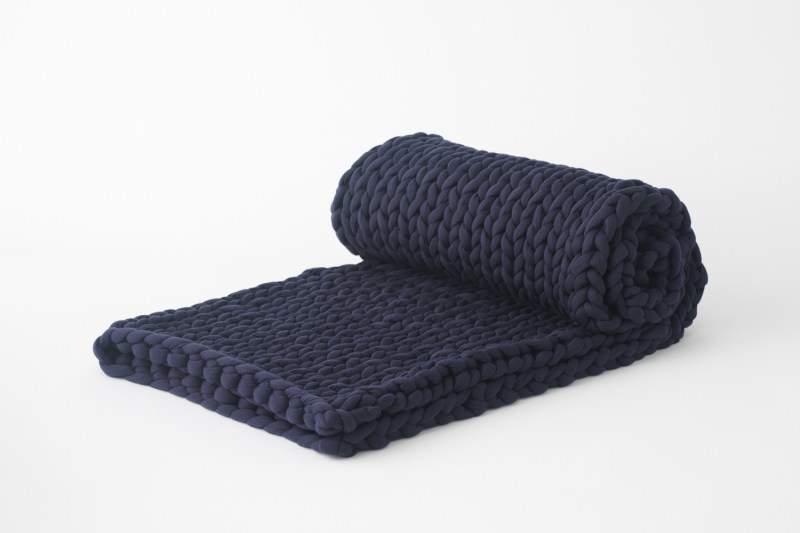
Unless you’ve been living under a rock recently, you’re probably more than aware of the trend of weighted blankets hitting the internet. Advertised as being the solution to any sleep problem, the concept behind the weighted blanket is something akin to being cocooned or hugged by an object. This mimicking of being spooned, coddled, and swaddled is supposedly able to reduce anxiety, help you fall asleep quickly, sleep more deeply, sleep longer, and wake up feeling refreshed.
When we first heard about the idea of a weighted blanket, and more specifically the Bearaby blanket known as the Napper, we were, to say the least, pretty skeptical. The seemingly crunchy-granola, self-help, self-improvement atmosphere around the idea of the weighted blanket had us thinking it was more woo-woo than workable.
After testing out the Bearaby blanket (courtesy of the brand sending a 2o-pound sample of The Napper), we have to admit, we are now true believers.
Seriously, it took less than three minutes from the time we covered ourselves with The Napper and snuggled into the couch before we were out cold. For hours. A 30-minute nap literally turned into four hours of near-coma sleep. We woke up from this stint feeling beyond refreshed. So, how does it really work?
According to the brand, “Through its proprietary weave technology, Bearaby incorporates Deep Touch Pressure (DTP) that distributes a gentle pressure evenly across the body and mimics the sensation of being hugged or swaddled. DPT is highly beneficial to the body and has been proven to stimulate the production of serotonin, reducing stress and increasing a sense of calm.”
Made from naturally weighted vegan yarn woven into a wide loop design, The Napper is as soft as it is sleep-inducing without the potential disaster of weighted glass beads and other heavy objects woven into the material, which is so often the case with other weighted blankets.
The Napper

A few things to keep in mind: This blanket is heavy. Like, you could do an arm workout just by folding the blanket heavy. It’s also not cheap. But, if you’ve been suffering from insomnia or poor sleep and everything short of drugs has been tried and hasn’t worked, do yourself a favor and order The Napper. We guarantee you’ll be sleeping like the dead before you know it.
For other great bedding options, check out our favorite pillows for stomach sleepers.


